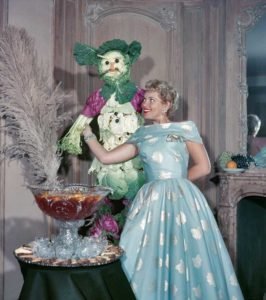Zé do Caixão: The Legacy of José Mojica Marins in Brazilian Horror Cinema
Discover the eerie legacy of José Mojica Marins, creator of Zé do Caixão, and how he revolutionized horror cinema in Brazil and beyond.

A pioneer in horror cinema in Brazil, José Mojica Marins, better known as Zé do Caixão, has made more than 30 films, including comedies, pornochanchadas and adventures. At the age of 17, he founded the Atlas Cinematographic Company Studio in Brás. There he taught film classes and also tested spiders and rats for his horror scenes.
He made amateur films in 16mm (silent) and 35mm (sound). His films were even censored in the 1970s. In the 1980s he dedicated himself to pornochanchadas, with “24 horas de Sexo Ardente” (1984), “48 Horas de Sexo Ardente” (1986) and “Dr. Frank na Clínica das Taras” (1987). It was then that he gained recognition outside the country, becoming a cult filmmaker. An interesting fact is that the director was dubbed in almost all of his films, except for Encarnação do Diabo. Among his dubbers are Laercio Lauretti, Araken Saldanha and João Paulo Ramalho. His most famous character was created in 1963, after having a nightmare. His first appearance was in the film À Meia-Noite Levarei Sua Alma (1963). About his character, Mojica said:
“Josefel Zanatas was born with a silver spoon in his mouth, his parents owned a chain of funeral homes, which made Josefel a very lonely child, as his classmates discriminated against him because of his parents’ profession.
At school he was a great student and, since he had no friends, he made books his great companions. It was at school that he met Sara, a very beautiful girl from a good family. They soon became great friends, and they would never be apart. They grew up together and over time their friendship turned into love. They decided that they would get married and move to a bigger city where they would have more chances to grow in life. Sara wanted to get married abroad, so both Sara and Josefel’s parents decided to travel early to start preparations for the ceremony.
During the flight, a tragedy occurs: the plane carrying Sara and Josefel’s parents crashes and there are no survivors. Because of their grief, they decide to postpone the wedding. Due to World War II, in August 1943, The Brazilian Expeditionary Force (FEB) was created. Only twenty-eight thousand people enlisted, Josefel was one of them, and in conversation with Sara, they decided together that they would only get married when he returned from the war.
And so, on the night of June 30, Josefel left for Italy. During the time he was there, Josefel suffered a lot, and he missed Sara even more after he stopped receiving letters from her. After Josefel left for the war, Sara continued to run the funeral home. She always wrote to him, but after many unanswered letters, she ended up concluding that he must be dead. Since life was not easy, Sara accepted the invitation she had received from the mayor and married him.
On July 18, 1945, Josefel disembarked at the station in his town and realized that the town was empty and his house was closed. Desperate to find Sara, he decided to ask a drunk where everyone was. The drunk informed him that the entire town was at the mayor’s house, as there was a party to celebrate the return of the “Pracinhas”. Arriving at the party He finds Sara sitting on the mayor’s lap and, before she can explain herself, he pulls out his gun and kills them both. Josefel is not convicted of the crime because it was alleged that he was traumatized by the war. It didn’t matter to him whether he was arrested or not, he had lost Sara and with her he would also lose the feeling called love. Josefel, who until then was a sweet and kind man, becomes a bitter and emotionless person. He then begins to terrorize the town’s residents and soon receives the nickname Zé do Caixão. Zé do Caixão is a man without beliefs, he doesn’t believe in God or the Devil, he only believes in himself, he thinks he is the only one who can do justice. His goal is to find a woman who shares his thoughts and together they can have a child, who can continue his species, which he believes is superior. For Zé do Caixão, children are the only pure beings, without evil in their hearts. In search of the superior woman, he tramples over everyone who gets in the way of his plans, he shows no mercy or pity and kills if necessary.



